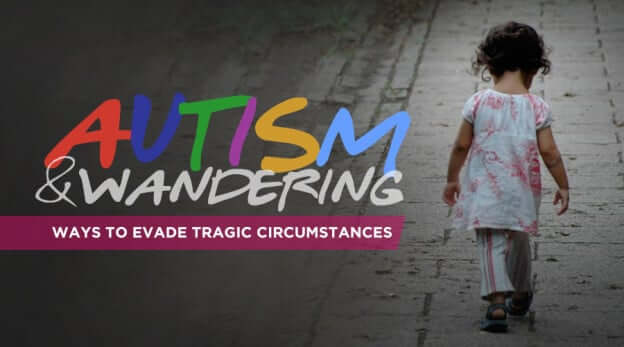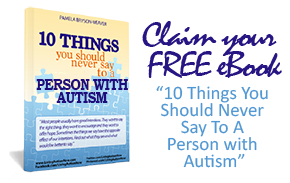It is a known fact that nearly half of children with autism will wander from safe environments. May it be in school, at home or in a day care center, the issue of wandering or elopement always generates a deep level of fear among parents, caregivers, teachers and anyone directly involved with them. One common denominator among wandering cases is that most of these kids are considered nonverbal. They can slip through a crowd unnoticed. This makes the ordeal even more frightening as these kids often do not sense danger.
Likely Causes of Wandering
Children with autism go missing under a variety of situations and circumstances. Some seek places familiar to them or places that pique their curiosity. Places of special interest are bodies of water, a park, and a secluded or enclosed space. Kids on the spectrum may try escaping from overwhelming stimuli such as loud sounds, unusual sights, unfamiliar surroundings, and rowdy activities with other children involved. Sometimes, it can also be triggered with a disruption in their usual routine. There are a thousand and one reasons why these kids wander. As parents and guardians, it is imperative that we find ways to guarantee their safety.
Life-Saving Tips for Parents and Guardians
It is important to assume that your child can go missing. You need to accept the fact that whether you are in the comfort of your own homes or he may be in a seemingly secured school ground, the probability of an autistic child wandering is always there. Your first course of action, however, should be to identify certain risks for your child. Does he or she have a particular interest like a pool or a lake? Does he love vehicles? Do fire trucks and trains make him excited? Bodies of water like lakes, rivers, swimming holes, waterfalls, and so on can easily caught the attention of children as well as teens on the spectrum. As a parent or guardian, you often have first-hand information on certain “risks” that could draw out your child. Identify certain areas in your community particularly those nearest to the places where he is always billeted. This is of utmost importance especially when moving to a new neighborhood where everything can be interesting and trigger overstimulation of his sensory perception.
Inform and Engage
Create an information drive starting from your closest circle of family members, relatives, friends, teachers, and caregivers. Make sure that these people are alerted on your child’s potential interests and attractions. Sharing this knowledge to the people directly involved in his or her activities can be of great help in identifying places and spaces proven to be hazardous to their well-being. In most cases, this will also prove to be the most effective in search and recovery situations.
Reach out to the local law enforcement agency. Ask if they have any program that helps track a child with autism in case of a wandering or elopement incident. Some communities also offer programs concerning safety of children and teens on the spectrum. In some cases, the local law enforcement or a community provides a GPS tracker. Buying one from radio shack or any electronic retailer near you can also be of big help. Charm bracelets or any “wearables” for your child where you can place an identification badge complete with your contact details is also important. Place one also on his or her backpack or pocket for easy identification should they go out and about. Dead-bolts, inside digi-locks, and placing a STOP sign on the inside of your doorways can also help prevent kids with autism from wandering outside your home. If allowed, getting your child a service dog can also prove to be helpful. Be wary of allergies and underlying health conditions though.
In everything else, try putting yourself in your child’s shoes. What you consider the sneakiest idea might have also crossed his or her mind. Fill in the gaps before it happens—and the time is now!






This article is made up of great genuine thinking.
The informational content here shows that things aren’t
so black and white. I feel smarter from just reading this.
Keep sharing.
thank you! kindly share to everyone so we can prevent any tragic circumstances from wandering.
Way cool! Some extremely valid points! I appreciate you
penning this article and the rest of the website
is extremely good.
Hi! This is Amy from the Living Autism Now team and we would like to thank you both for the interest. Do feel free to share this post so we can spread awareness on how to prevent tragic circumstances from wandering. Bless you and your family! Check out also our community page on Facebook here– https://www.facebook.com/LivingAutismNow/
I like the helpful information you provide in your articles.
I’ll bookmark your weblog and test once more right here regularly.
I’m slightly sure I’ll be told plenty of new stuff right
here! Best of luck for the following!
The coverage in the UK of both the Olympics
and Paralympics of 2012 was excellent.